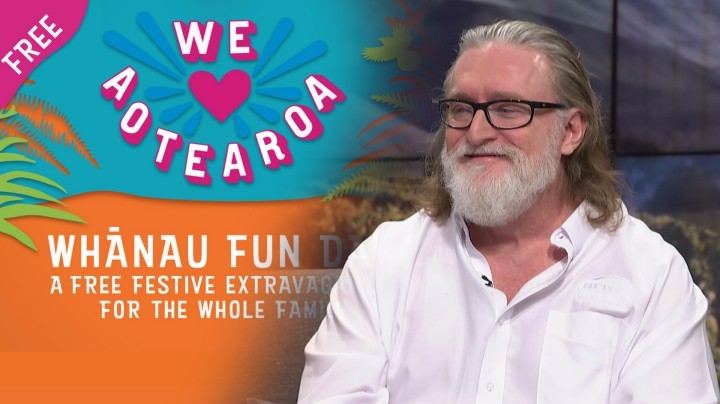Video Gamer is reader-supported. When you buy through links on our site, we may earn an affiliate commission. Prices subject to change. Learn more
Gabe Newell, president of Valve, is setting up a free concert to thank New Zealand for looking after him and his friends during the pandemic.
That’s quite a sentence, so let’s backtrack for a moment. In an interview with TVNZ1, Newell explained that, after the launch of Half-Life: Alyx, he and his friends went to New Zealand for a holiday. Unfortunately, the coronavirus crisis became a pandemic not long after that, causing lockdowns and travel restrictions around the world. Instead of attempting to leave, they decided to stay in the interest of safety, and the kindness and hospitality shown by New Zealanders towards him and his friends has left an impression.
To thank the people who have looked after them, they’ve set up “We Love Aotearoa,” a free event and concert scheduled for August 15 in Auckland. Artists like The Black Seeds, Ladi6, Leisure, JessB, Clicks, Sola Rosa, Frank Booker, Flamingo Pier, and Tina Turntables will appear, as well as art installations, workshops and activities, food trucks, and virtual reality stands (of course). “These events are a thank you to the people of New Zealand for being so kind and welcoming, and also an acknowledgment of the hard work that ‘the team of 5 million’ have gone through to get us to where we are now,” read the event website.
In the interview, Newell praised the generosity of New Zealanders once again. “We’ve continued to connect with more people and discover more things about New Zealand, and that’s made it very easy,” he said. “The hardest part by far is being worried about friends and family who aren’t in New Zealand. When I talk to people back in Seattle, it’s a very strange time. It’s very challenging. They’re very isolated.”
